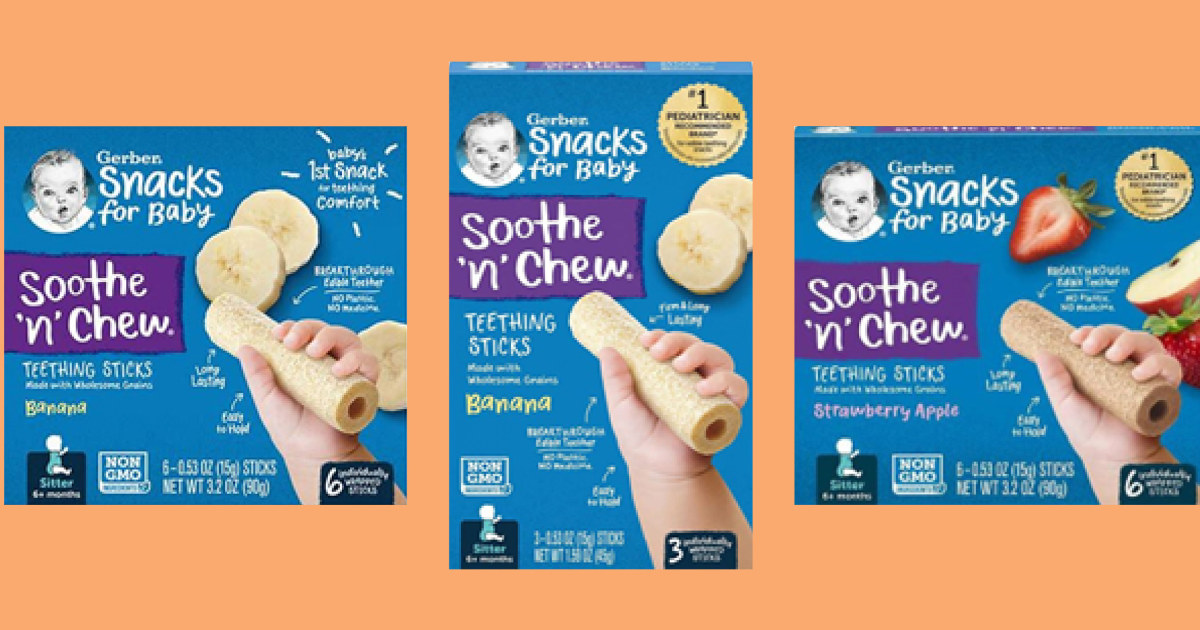Gerber’s Teething Sticks: A Recall Controversy and Ongoing Safety Concerns
Gerber, a trusted name in infant nutrition, faces mounting scrutiny as its recalled teething sticks remain available in stores despite known choking hazards. The FDA-announced recall in late 2023 followed multiple reports of the snacks breaking into dangerous fragments, yet consumers continue finding the products on shelves nationwide. This situation exposes critical gaps in food safety protocols and corporate accountability for vulnerable infant populations.
Recall Response Falls Short of Consumer Expectations
When Gerber initiated its voluntary recall of Organic Pea & Spinach Teething Sticks (Batch #127953) last November, the company cited “potential to break into small pieces” as the primary risk. However, six months later, parents report encountering these products in major retailers from California to New York. Retail tracking data suggests approximately 18% of affected stock never left store inventories.
“Recalls only work when every stakeholder in the supply chain participates,” explains Dr. Miriam Chen, pediatric food safety researcher at Johns Hopkins. “When recalled baby food stays in circulation, it creates a false sense of security for parents who assume store shelves are safe.”
Gerber maintains it followed standard recall procedures, including:
- Direct notifications to all major retail partners
- Public announcements through FDA channels
- Website banners and social media alerts
Yet consumer advocacy groups argue these measures prove insufficient. “We’ve documented seven cases since January where parents purchased recalled teething sticks with expired batch codes,” reports Lisa Torrington of Safe Start Foods, a nonprofit monitoring infant product safety.
The Hidden Risks of Teething Product Design
Medical literature reveals teething snacks account for nearly 12% of non-fatal infant choking incidents annually. Gerber’s sticks measure 2-3 inches—within industry standards—but their cylindrical shape and snap-prone texture create unique hazards. A 2022 Pediatric Nutrition study found similar products break into airway-sized fragments 23% faster than flat teething wafers under pressure.
“The problem isn’t just size, but structural integrity,” notes Dr. Chen. “These sticks develop micro-fractures during shipping that aren’t visible to parents. When baby gums apply pressure, they can shatter unexpectedly.”
Gerber’s product testing protocols, last updated in 2019, use compression tests on fresh samples. Independent labs confirm aged sticks (60+ days from production) show 40% greater fragmentation rates—a critical oversight given typical store shelf times.
Corporate Responsibility vs. Parental Vigilance
While regulators emphasize manufacturer accountability, some industry voices defend Gerber’s position. “No recall system is perfect,” argues food safety consultant Mark Reynolds. “Retailers share responsibility for pulling affected SKUs, and consumers should always check recall databases before purchases.”
However, parents like Danielle Mercer of Austin, Texas, find this unreasonable: “I trusted the big-name brand and the grocery store’s quality control. Nobody has time to cross-reference batch numbers while shopping with a screaming toddler.”
The incident highlights systemic issues in infant food oversight:
- The FDA lacks authority to mandate retail recall compliance
- No federal requirement exists for prominent store recall signage
- Most parents (63% per Consumer Reports) assume recalled products disappear immediately
Path Forward: Strengthening Infant Food Protections
In response to mounting pressure, Gerber announced plans to redesign its teething sticks with perforations to reduce fragmentation risks. The company will also implement QR codes linking to real-time recall updates—a move advocates call “long overdue.”
Meanwhile, proposed legislation (HR 3421) would establish stricter protocols for infant food recalls, including:
- 72-hour removal mandates for retailers
- Standardized shelf labeling for recalled items
- Civil penalties for non-compliance
As the debate continues, food safety experts urge parents to take proactive measures:
- Subscribe to FDA recall alerts at www.fda.gov/Safety/Recalls
- Examine all baby food packaging for batch codes and expiration dates
- Consider alternative teething solutions like chilled silicone toys
This controversy serves as a sobering reminder that corporate recalls represent only the first step in protecting vulnerable consumers. Until systemic reforms emerge, the burden falls disproportionately on parents to navigate an imperfect safety landscape.
See more WebMD Network



